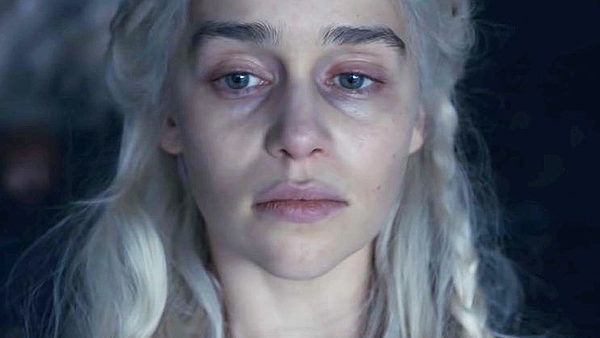Game Of Thrones Ending: 12 Disturbing Implications You Probably Missed
1. It's All Just The Death Of Imagination

The Ending
In the end, we get a pragmatic ending, rather than a heroic one. Dany is killed for her breakdown and for the threat of what she'd do in future if she was left to reign and though it means Jon can't sit on the Throne as a hero (partly because there's no throne left), it's fairly happy, as endings in this universe go.
But Wait...
One thing we've heard repeatedly since Game Of Thrones broke onto the scene was that George RR Martin was invested in subversion more than anything else. He was never going to write a "straight" fantasy story where the hero sat on the throne and good vanquished evil without some almighty cost. Everything would have an ominous caveat (which is sort of where the space for this article to exist even comes from).
But fundamentally, the ending of Game Of Thrones is the death of imagination and fancy and fantasy. Had Dany won the Iron Throne, it would have been a victory for magic and dragons and wonder and dreams, but when Bran sits on the throne, it's a pragmatic victory for democracy and the integration of clean water systems and being sensible.
That's good for the realm, but it's not that great for our hearts. And neither is the failure to deliver on lots of other mystical things: in the end Bran didn't warg into a dragon, there was no real sighting of Azor Ahai, the Lord Of Light dropped out of the game entirely and the White Walkers were killed off early for a more human focus.
It wasn't a bad ending, no matter how you spin it, but the demystification of the Seven Kingdoms was an awful implication for anyone who wanted it to be about unicorns and secret mermen.
What did you think of the end of Game Of Thrones? Share your thoughts below in the comments thread.